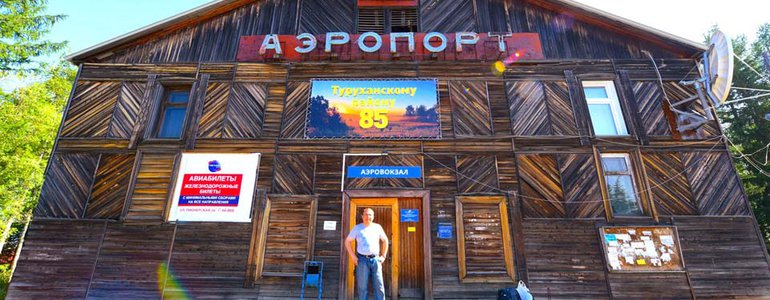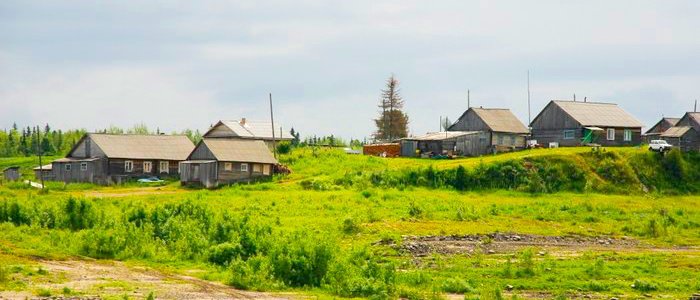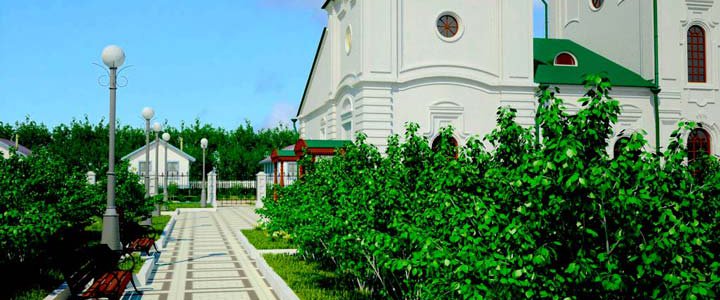 TURUKHANSK: SAINTS AND EXILES
TURUKHANSK: SAINTS AND EXILESIt will also be interesting to learn about way of life and lifestyle of ancient Siberian Settlements such as Turukhansk. Turukhansk, now a settlement of about 5,000, was founded in 1607 as a winter stockade (zimovye) near the site where the Lower Tunguska river flows into the Yenisey. Tunguska - because on its banks Tungus people (modern Evenki) lived, and the definition of lower sets it apart from the other two Tunguska.
 TURUKHANSK
TURUKHANSKTurukhansk has a Museum of Political Exile (Muzey "Politicheskaya Ssylka", where the revolutionary Yakov Sverdlov spent his time in exile in 1913-16, partly with Joseph Stalin, who had been dispatched to the village of Kureyka, 105 miles south of Igarka. Life for the revolutionaries was something of an enforced vacation, far from the madding crowd. Whenever Stalin visited, they prepared their meals together and plotted the overthrow of the man who sent them into the taiga. Sverdlov, in the company of his wife, read Marx, hunted and fished, tended his cow and generally lived without hardship. While there, he also organised a workers cooperative and taught local children.
 HOLY TRINITY MONASTERY
HOLY TRINITY MONASTERYTurukhansk's other cultural attraction is its partially-restored monastery at ulitsa Partizanskaya 15. Holy Trinity Monastery (Svyato-Troytsky Muzhskoy Monastyr) was founded in 1657. The history of the monastery is closely connected Basil of Mangazeya.